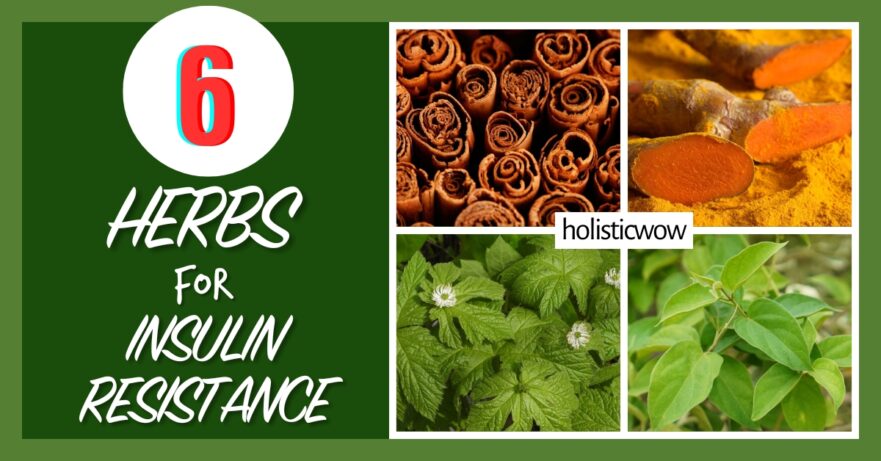In this article about herbs for insulin resistance:
🌿 Best Herbs for Insulin Resistance | 📜 Herbal Preparations and Recipes for Insulin Resistance | ☯️ Integrating Herbs into Daily Life for Insulin Resistance | 🌱 Navigating Herbs Safely
Insulin resistance is a condition where cells don’t respond effectively to insulin, leading to high blood sugar levels. This can cause increased thirst, frequent urination, fatigue, and difficulty losing weight. Left unchecked, it may progress to type 2 diabetes.
Certain herbs offer potential benefits for managing insulin resistance. Cinnamon, turmeric, and gymnema have shown promise in improving insulin sensitivity and blood sugar control. These natural remedies may complement lifestyle changes in supporting metabolic health.
Understanding how these herbs work and incorporating them safely into your routine is crucial. This guide explores their benefits, usage, and important considerations to help you make informed decisions about managing insulin resistance naturally.
Key Takeaways
- 💖 Cinnamon’s Insulin Impact: Cinnamon contains compounds that may improve insulin sensitivity by enhancing how cells respond to insulin.
- 🧁 Gymnema’s Sugar Control: Gymnema, often called the “sugar destroyer,” may help reduce sugar cravings and improve blood sugar levels after meals.
- ✨ Fenugreek’s Digestive Benefits: Fenugreek seeds can slow the digestion and absorption of carbohydrates, which may help control blood sugar levels.
🌿 Best Herbs for Insulin Resistance
Insulin resistance is a condition in which cells don’t respond effectively to the hormone insulin. This can lead to high blood sugar levels and is often a precursor to type 2 diabetes. Common signs of insulin resistance include increased thirst, frequent urination, fatigue, and difficulty losing weight, especially around the midsection.
The development of insulin resistance is often linked to factors such as obesity, lack of physical activity, and poor diet. It’s a key component of metabolic syndrome, including high blood pressure, abnormal cholesterol levels, and excess body fat around the waist.
Nature offers several herbs that have been traditionally used to support metabolic health and potentially improve insulin sensitivity. These include cinnamon (Cinnamomum spp.), turmeric (Curcuma longa), goldenseal (Hydrastis canadensis), gymnema (Gymnema sylvestre), fenugreek (Trigonella foenum-graecum), and ginger (Zingiber officinale). These herbs have unique properties that may contribute to better blood sugar control and overall metabolic function.
Understanding the signs and causes of insulin resistance is the first step in addressing this condition. You can take proactive steps toward improving your metabolic health by incorporating lifestyle changes and considering the potential benefits of these herbs after consulting with a healthcare provider to ensure they are appropriate for your health needs.
Cinnamon (Cinnamomum spp.)
Cinnamon (Cinnamomum spp.) has been used for thousands of years and has shown potential in managing insulin resistance and blood sugar levels. Some studies suggest that cinnamon may enhance insulin sensitivity and improve glucose uptake, potentially lowering blood sugar levels. However, results are mixed: while some research shows benefits in fasting blood glucose and lipid profiles, others find no significant improvements, particularly in postmenopausal women with type 2 diabetes [1]. A meta-analysis showed cinnamon can reduce fasting blood glucose and improve lipid levels but has little effect on HbA1c [2]. For individuals looking to support insulin sensitivity, adding cinnamon to their diet may offer moderate benefits, but it should not replace medical treatments without consulting a healthcare provider.
Turmeric (Curcuma longa)
Turmeric (Curcuma longa), used for centuries in traditional medicine, owes its health benefits to curcumin, its active compound. Turmeric shows promise in improving insulin sensitivity and reducing inflammation, both key factors in managing metabolic disorders. Curcumin helps improve the way the body handles sugar and fats, which can increase insulin sensitivity [3]. Its anti-inflammatory properties also help reduce chronic inflammation linked to insulin resistance and type 2 diabetes. Human studies show that curcumin can help improve important markers related to insulin sensitivity in people with type 2 diabetes [4]. However, curcumin’s low bioavailability means it is more effective when consumed with black pepper or fats.
Goldenseal (Hydrastis canadensis)
Goldenseal (Hydrastis canadensis), traditionally used by Native American tribes, contains berberine, which has shown potential for improving insulin sensitivity. Studies suggest that berberine improves insulin sensitivity and blood sugar management through mechanisms similar to the diabetes drug metformin [5]. Berberine has been shown to improve insulin sensitivity and glucose metabolism, which may help manage blood sugar levels in those with insulin resistance. Evidence suggests that berberine may support overall health by reducing inflammation and improving gut health [6]. While goldenseal shows promise for managing insulin resistance, it can interact with certain medications, and its use should be monitored by a healthcare provider, especially for long-term use due to potential side effects.
Gymnema (Gymnema sylvestre)
Gymnema (Gymnema sylvestre), often called the “sugar destroyer,” is a woody climbing shrub native to India and Africa, traditionally used in Ayurvedic medicine to help manage diabetes and metabolic disorders. Gymnemic acids in the plant may reduce sugar absorption and help manage sugar cravings. Studies indicate that Gymnema can stimulate insulin secretion from pancreatic cells and may help protect these cells [7] [8], which is beneficial for people with insulin resistance or type 2 diabetes. In people with type 2 diabetes, Gymnema has been shown to improve insulin secretion, reduce fasting blood glucose, and enhance overall glycemic control [9]. For those looking to support their metabolic health, Gymnema offers a natural approach, though it should be used alongside conventional treatments under medical supervision.
Fenugreek (Trigonella foenum-graecum)
Fenugreek (Trigonella foenum-graecum) has been used for centuries in traditional medicine and cooking, particularly in Middle Eastern and South Asian cuisines. Its seeds contain soluble fiber that helps slow digestion and carbohydrate absorption, which may help control blood sugar levels. Studies show that fenugreek can improve insulin sensitivity, lower fasting blood glucose, and HbA1c levels in people with type 2 diabetes, improving overall glycemic control [10] [11]. Fenugreek has also been found to lower cholesterol and triglyceride levels, further supporting heart and metabolic health. Adding fenugreek to your diet or taking it as a supplement may benefit those looking to support their metabolic health naturally.
Ginger (Zingiber officinale)
Ginger (Zingiber officinale) is commonly used as a spice and in traditional medicine, and it may help improve blood sugar management. Studies show ginger supplementation can improve insulin sensitivity and reduce fasting blood sugar levels, particularly in people with type 2 diabetes [12]. Active compounds like gingerols and shogaols inhibit enzymes involved in carbohydrate metabolism and enhance glucose uptake in cells, contributing to better glycemic control. Ginger’s ability to improve insulin sensitivity and lipid profile may help manage type 2 diabetes and its complications [13]. Additionally, ginger may aid in weight management, supporting improved insulin sensitivity. Regular consumption, whether fresh, as a tea, or in supplement form, may contribute to better blood sugar control, but it should be used alongside conventional treatments under medical supervision.
📜 Herbal Preparations and Recipes for Insulin Resistance
These herbal blends are designed to support metabolic health and potentially improve insulin sensitivity. Each recipe combines specific herbs known for their beneficial effects on blood sugar management. Always consult a healthcare provider before starting any new herbal regimen, especially if you have existing health conditions or are taking medications.
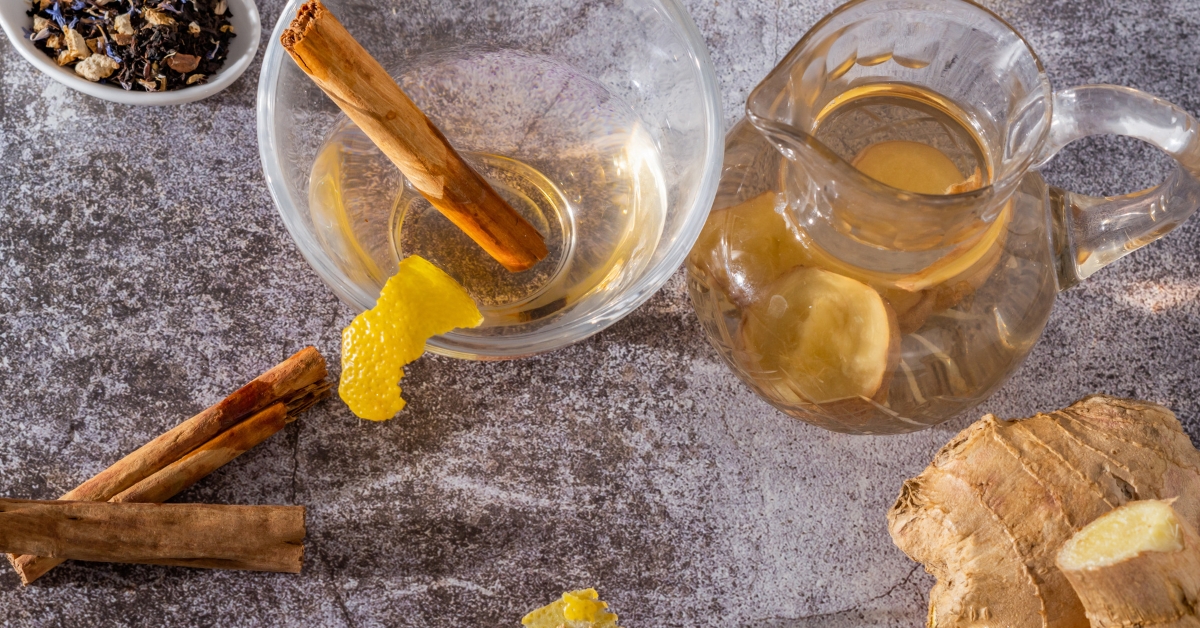
Cinnamon-Ginger Tea
Ingredients:
- 1 teaspoon dried cinnamon bark
- 1 teaspoon dried ginger root
- 1 cup of boiling water
Preparation:
- Combine cinnamon and ginger in a teapot.
- Add boiling water and steep for 10 minutes.
- Strain and drink once daily, preferably in the morning, to help support blood sugar balance.
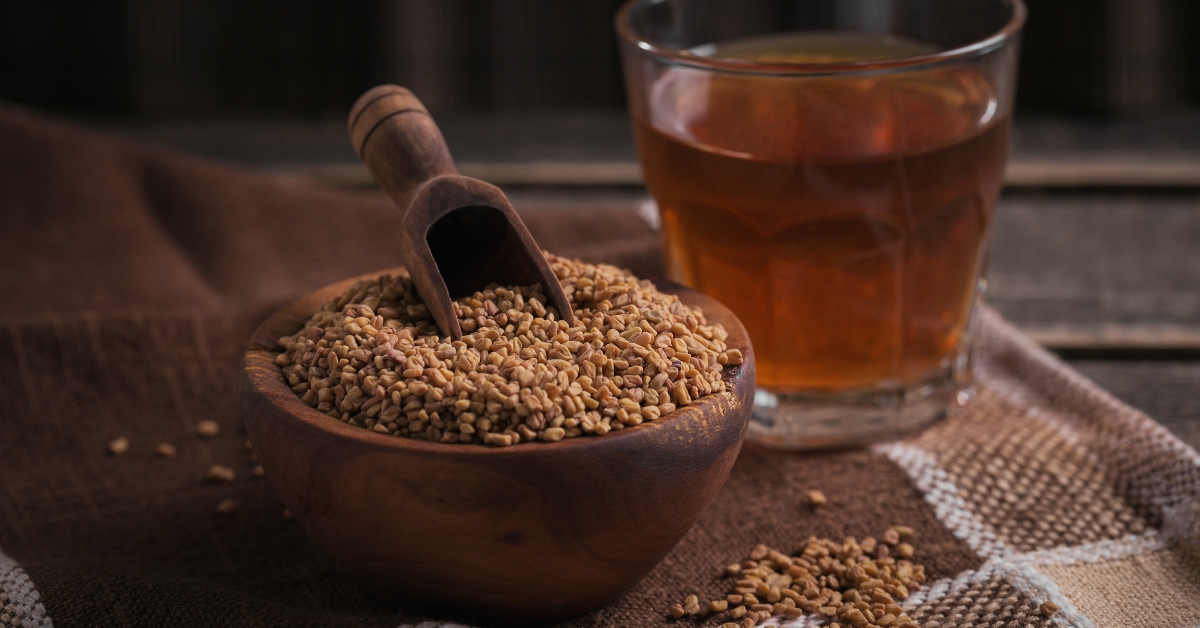
Turmeric-Fenugreek Infusion
Ingredients:
- 1 teaspoon dried turmeric root
- ½ teaspoon fenugreek seeds
- 1 cup of boiling water
Preparation:
- Mix turmeric and fenugreek in a teapot.
- Pour boiling water over the herbs and steep for 15 minutes.
- Strain and drink twice daily, morning and evening, to support insulin sensitivity.
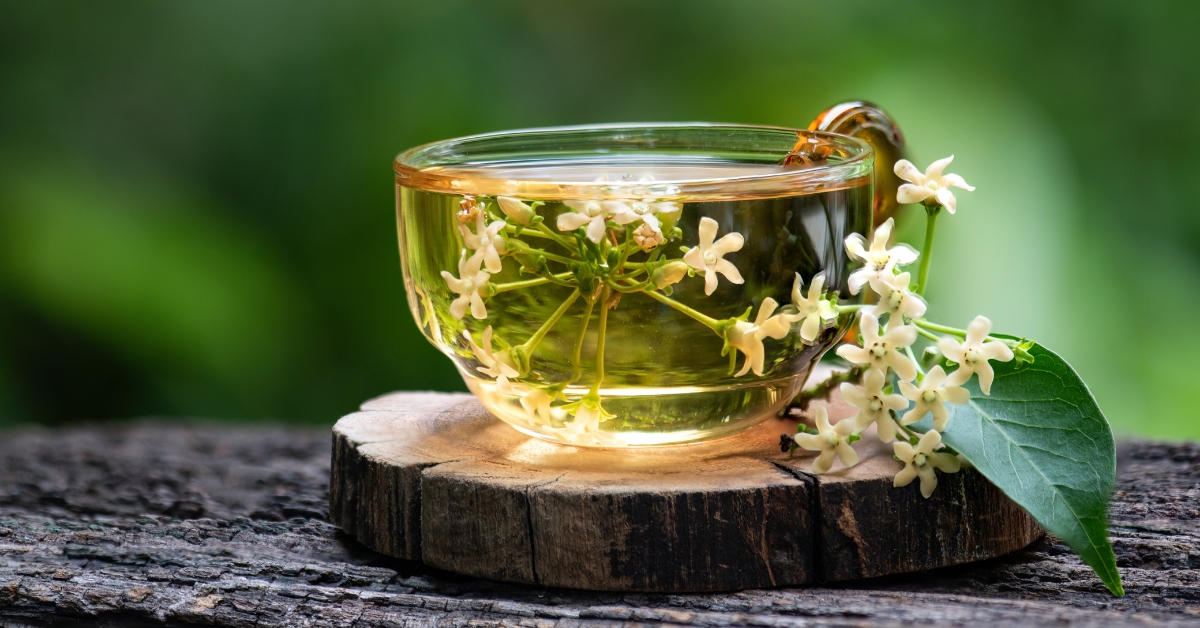
Gymnema-Cinnamon-Ginger Blend
Ingredients:
- ½ teaspoon dried gymnema leaf
- ½ teaspoon dried cinnamon bark
- ½ teaspoon dried ginger root
- 1 cup of boiling water
Preparation:
- Combine all herbs in a teapot.
- Add boiling water and steep for 10-15 minutes.
- Strain and drink once daily before a meal to support blood sugar control.
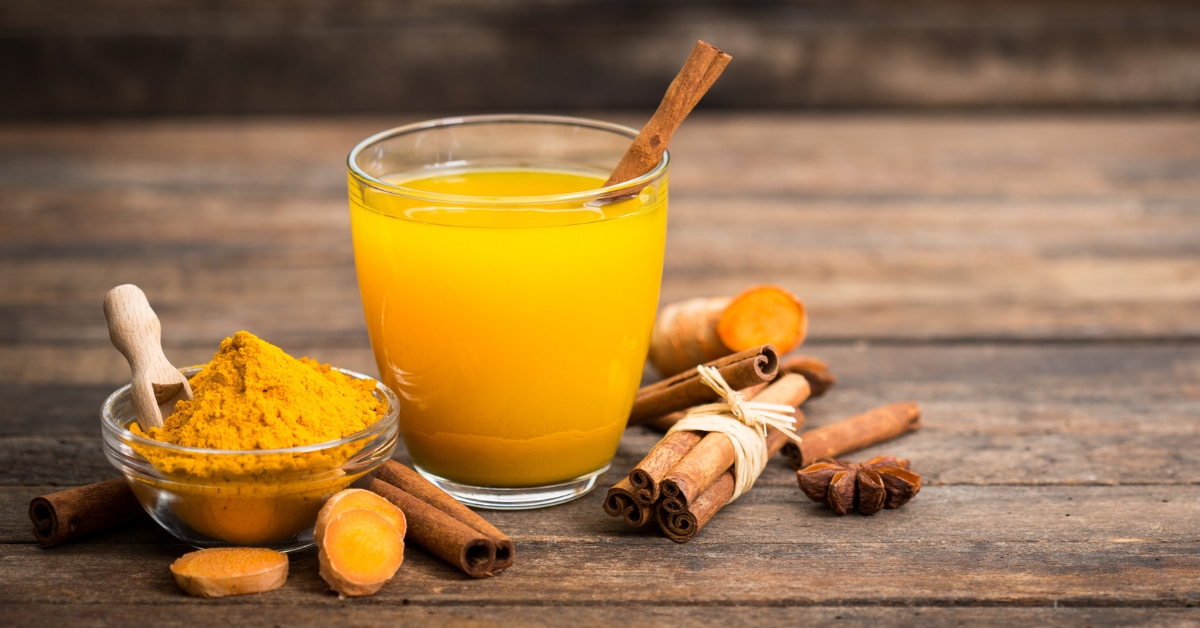
Metabolic Support Tea
Ingredients:
- ½ teaspoon dried gymnema leaf
- ½ teaspoon dried fenugreek seeds
- ½ teaspoon dried cinnamon bark
- ½ teaspoon dried turmeric root
- 1 cup of boiling water
Preparation:
- Mix all herbs in a teapot.
- Pour boiling water over the herbs and steep for 15 minutes.
- Strain and drink once daily in the morning to support overall metabolic health.
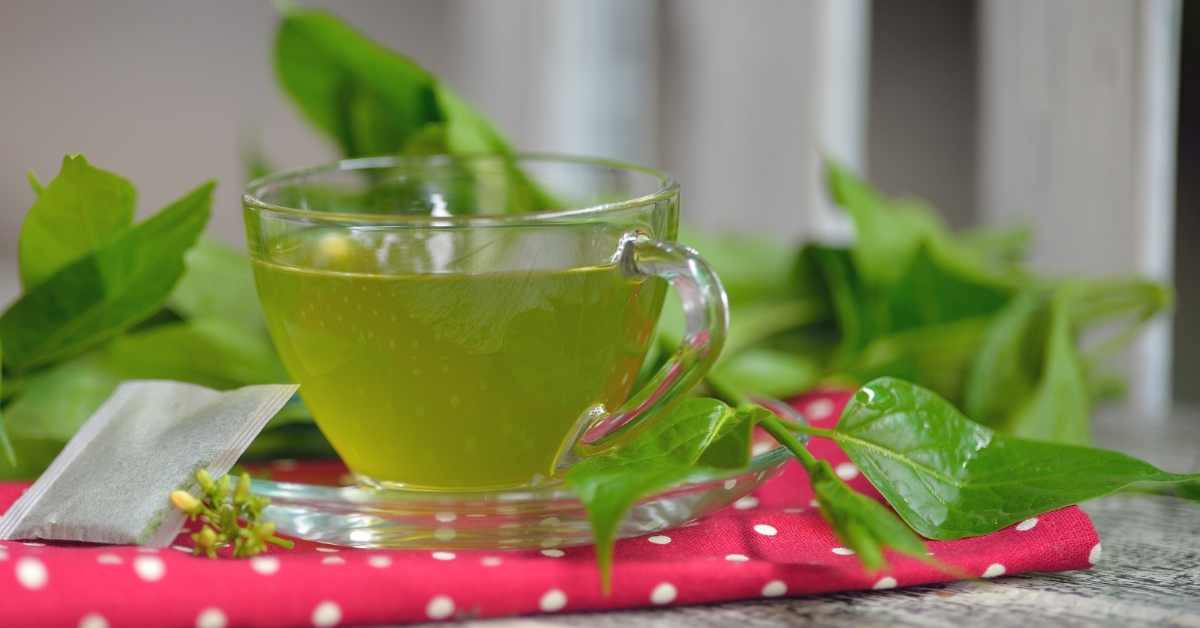
Insulin Sensitivity Boost
Ingredients:
- ½ teaspoon dried gymnema leaf
- ½ teaspoon dried fenugreek seeds
- ½ teaspoon dried cinnamon bark
- ½ teaspoon dried ginger root
- ¼ teaspoon dried goldenseal root
- 1 cup of boiling water
Preparation:
- Combine all herbs in a teapot.
- Add boiling water and steep for 10 minutes.
- Strain and drink once daily in the evening.
Due to the inclusion of goldenseal, use this blend for no more than two weeks at a time.
These herbal blends are designed to be easily incorporated into daily routines, offering a supportive approach to metabolic health. Adjust the recipes according to personal taste preferences and always start with lower doses, gradually increasing as tolerated. While these herbs may offer benefits, they should complement, not replace, a healthy diet and lifestyle for managing insulin resistance.
☯️ Integrating Herbs into Daily Life for Insulin Resistance
Incorporating herbs into your daily routine can potentially support metabolic health and help manage insulin resistance. Here are some practical tips for using herbs effectively and complementary practices to maximize their benefits.
Daily Use and Lifestyle Integration
- 🫖 Herbal Teas: Start your day with a cup of Cinnamon-Ginger Tea or Metabolic Support Tea. These can become part of a morning routine that may support metabolic health. Consider having the Gymnema-Cinnamon-Ginger Blend before meals to support blood sugar control potentially.
- 🍛 Culinary Uses: Incorporate herbs like turmeric, cinnamon, and ginger into your cooking. Add them to smoothies, sprinkle cinnamon on oatmeal, or use turmeric in curries and soups. This not only enhances flavor but also provides consistent, low-dose exposure to these beneficial herbs. However, turmeric should be consumed with black pepper or fat to improve curcumin absorption.
- 💚 Herbal Supplements: If you prefer not to drink herbal teas, consider taking herbs like gymnema or fenugreek in capsule or tincture form. These can be easily incorporated into your daily supplement regimen. However, caution is required with these herbs, especially in people taking medication for blood sugar management, as they can lower blood sugar levels.
Additional Practices to Support Metabolic Health
- 🥦 Dietary Adjustments: Focus on a fiber-rich diet, lean proteins, and healthy fats. Include plenty of vegetables, whole grains, and legumes. These foods naturally support blood sugar balance and can complement the effects of herbal treatments.
- 🏃♀️ Regular Exercise: Engage in regular physical activity, such as brisk walking, cycling, or swimming. Exercise helps improve insulin sensitivity and overall metabolic health.
- 🧘♀️ Stress Management: Practice stress-reduction techniques like meditation, deep breathing exercises, or yoga. Chronic stress can negatively impact insulin sensitivity, so managing stress is crucial for metabolic health.
- 😪 Adequate Sleep: Prioritize getting 7-9 hours of quality sleep each night. Poor sleep can disrupt blood sugar balance and insulin sensitivity.
- 🫗 Hydration: Drink plenty of water throughout the day. For added flavor, infuse water with cinnamon sticks or ginger slices. However, be cautious with excessive use of cinnamon, particularly cassia cinnamon, due to its coumarin content, which can harm the liver in large amounts.
- 🍏 Mindful Eating: Practice mindful eating habits, paying attention to hunger cues and eating slowly. This can help improve digestion and nutrient absorption.
When using herbs like licorice (Glycyrrhiza glabra), be cautious, as they can affect blood pressure and potassium levels. They’re best used under professional guidance, especially if you have hypertension, kidney disease, or are taking medications that affect potassium levels.
Integrating these herbs and practices into daily life offers a holistic approach to managing insulin resistance. Always start with smaller doses to see how your body reacts, and consult with a healthcare provider to ensure these herbal remedies are appropriate for you, especially if you are currently on medication or have underlying health conditions.
🌱 Navigating Herbs Safely
Starting with small doses is the first step when adding herbal remedies to your health routine. This approach lets you see how you respond and adjust amounts for the best effect, keeping safety in mind. While many herbs are safe, everyone’s body reacts differently. If you notice any side effects, it’s important to stop and think about what might be causing them.
Remember, herbs can sometimes interact with prescription medicines. These interactions might make your medicines work too well or not well enough, which is why talking to a healthcare provider or an herbalist is essential. This is especially crucial if you’re pregnant, breastfeeding, taking medications regularly, or have an existing health condition. Getting advice tailored to your situation can help you avoid any unnecessary risks.
For kids and older adults, being extra careful with herbs is important. Their bodies might react more strongly to herbal remedies, and the chance of side effects or interactions could be greater. Before giving herbal treatments to children or elderly family members, getting advice from a professional is a must to ensure their safety.
By being cautious and seeking expert advice when needed, you can make herbal remedies a safe part of your wellness plan. This careful approach allows you to enjoy the benefits of herbs while keeping yourself and your family safe.
Cinnamon, turmeric, goldenseal, gymnema, fenugreek, and ginger all offer unique benefits for blood sugar control and overall metabolic function.
These herbs can potentially improve insulin sensitivity, reduce inflammation, and help manage blood sugar levels.
FAQ
What herbs are most effective for managing insulin resistance?
If you're looking for herbs that may help manage insulin resistance, several have shown potential benefits. Cinnamon, for instance, is widely known for its ability to enhance insulin function. However, research shows mixed results—while it can help some people manage blood sugar levels, it’s not effective for everyone. If you do use cinnamon, it's best to opt for Ceylon cinnamon rather than cassia cinnamon, as the latter contains higher levels of coumarin, which can be harmful in large amounts. Gymnema, often called the "sugar destroyer," is another option. It’s known for reducing sugar cravings and may help stimulate insulin production in the pancreas, though more studies on its long-term effects in humans are needed. Turmeric is also worth considering. Its active compound, curcumin, may improve insulin sensitivity and reduce inflammation, which is often linked to insulin resistance. Just keep in mind that turmeric is best absorbed when taken with black pepper or a source of fat. Fenugreek works in a different way—it slows down digestion and carbohydrate absorption, which helps manage blood sugar levels. Studies have shown that fenugreek seeds can lower fasting blood sugar and HbA1c levels, markers that indicate long-term blood sugar control. Ginger has also been found to help improve insulin sensitivity and reduce fasting blood sugar, particularly in people with type 2 diabetes. While these herbs can support insulin sensitivity, they work best as part of a larger lifestyle strategy that includes a balanced diet and regular exercise. Also, it’s important to talk to your healthcare provider before adding any of these herbs to your routine, especially if you’re on medication, as they can interact with treatments for diabetes.
How can I incorporate these herbs into my daily routine?
Incorporating herbs for insulin resistance into your daily routine can be simple and enjoyable. One easy way is to start your day with an herbal tea. For example, you can make a Cinnamon-Ginger tea by steeping up to a teaspoon each of dried cinnamon bark and ginger root in hot water for 10 minutes. You can also add these herbs directly into your meals. Turmeric works great in soups, stews, or rice dishes, but to get the most benefit, pair it with black pepper or a source of fat like olive oil, as this helps your body absorb curcumin, turmeric's active compound. Cinnamon is a versatile spice—you can sprinkle it on oatmeal or blend it into smoothies for a subtle sweetness. For fenugreek seeds, try soaking them overnight to reduce bitterness, and then mix them into salads or Indian-inspired dishes for a boost of flavor and nutrition. If teas and cooking aren’t your thing, you can find gymnema in capsule form, which makes it easy to incorporate into your daily supplement routine. Ginger can be consumed in several forms—fresh, pickled, or as a supplement. For most people, it’s safe to use up to 2-4 grams of dried ginger daily, but if you're pregnant or have certain health conditions, it’s a good idea to check with your healthcare provider first. Start with small amounts and see how your body responds. Consistency is key—regular, daily use of these herbs over time is much more effective than using large doses occasionally.
Are there any precautions I should take when using herbs for insulin resistance?
While herbs can be a valuable tool in managing insulin resistance, it's important to approach their use with caution and awareness. First and foremost, if you're currently taking medication for diabetes or any other condition, consult with your healthcare provider before adding herbs to your regimen. Some herbs can interact with medications or affect blood sugar levels in ways that may require adjustments to your treatment plan. For example, herbs like gymnema, fenugreek, and cinnamon can lower blood sugar, potentially enhancing the effects of diabetes medications, which could lead to hypoglycemia (low blood sugar). It's also crucial to source your herbs from reputable suppliers to ensure quality and purity. Start with small doses and gradually increase to assess your body's response. Some people may experience side effects such as digestive upset or allergic reactions. For instance, fenugreek may cause digestive symptoms like diarrhea or bloating, while cinnamon can cause allergic reactions in some individuals. If you experience any adverse effects, discontinue use and consult a healthcare professional. Pregnant or breastfeeding women should be particularly cautious and seek medical advice before using these herbs. Certain herbs, such as fenugreek, may stimulate uterine contractions, and ginger in high doses may affect blood clotting. Remember, while these herbs can be beneficial, they should complement, not replace, a healthy diet, regular exercise, and any prescribed medical treatments for managing insulin resistance.

